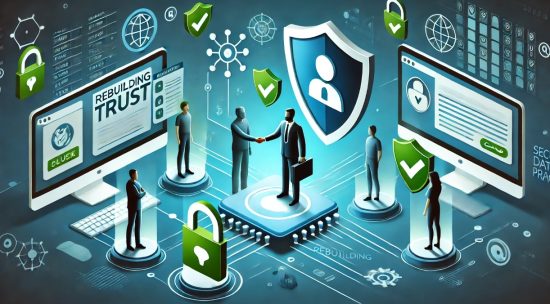The recent leaks from TheJavaSea.me have sent shockwaves through the cybersecurity community. At the core of this controversy is the exposure of AIO-TLP (All-In-One Threat Level Protocol) data, which has raised serious concerns about digital security and privacy.
These leaks are not just another headline; they represent a pivotal moment in understanding, managing, and protecting against cyber threats.
In this blog, I’ll delve deeper into what these leaks mean for the cybersecurity landscape and what steps you can take to protect yourself.
What Are TheJavaSea.me Leaks AIO-TLP?

TheJavaSea.me, a platform involved in data sharing and cybersecurity, became the subject of intense scrutiny when it was revealed that sensitive information, specifically concerning AIO-TLP, had been leaked.
But what exactly is AIO-TLP? This cybersecurity protocol is used to classify and securely share threat data among networks, organizations, and security professionals.
The leaks from TheJavaSea.me included detailed data about the AIO-TLP’s structure, user interactions, and threat-sharing mechanisms, all of which are vital to the platform’s operations.
This breach has revealed significant gaps in security practices and prompted a broader discussion on how such sensitive data can be better protected in the future.
How Are the AIO-TLP Leaks Impacting Cybersecurity?
The leaks have forced a reevaluation of existing cybersecurity practices. With the exposure of AIO-TLP data, organizations are beginning to recognize the inadequacies in their defences.
The breach has revealed weaknesses in both technical and human elements of security protocols.
Consequently, there is a heightened focus on enhancing threat detection systems, investing in more advanced encryption technologies, and fostering a culture of continuous security education among employees.
Furthermore, the leak has accelerated a shift from reactive to proactive cybersecurity measures.
Companies are moving beyond merely responding to breaches and are now seeking to predict and prevent them.
This involves deploying artificial intelligence (AI) and machine learning (ML) tools to analyze patterns and detect anomalies in real time.
What Are the Key Repercussions for Data Privacy and Protection?
The exposure of AIO-TLP data has also raised alarm bells about data privacy and protection. The leaked information could potentially be used to exploit vulnerabilities in both personal and corporate networks.
This situation has prompted an urgent need for new data privacy laws and more stringent data protection regulations to prevent future breaches.
Corporations are now under pressure to adopt more comprehensive data protection policies. This includes implementing multi-factor authentication (MFA), regular penetration testing, and encryption of all sensitive data.
Additionally, there is a growing emphasis on educating employees about phishing attacks, social engineering, and other common methods used by cybercriminals.
Why Are TheJavaSea.me Leaks Considered a Game Changer?

The JavaSea.me leaks are considered game changers due to the scale and sensitivity of the data involved.
Unlike previous data breaches, which primarily targeted customer information, this leak has exposed critical security data that could undermine entire cybersecurity infrastructures.
The impact is profound, as it affects both the public and private sectors, prompting a fundamental reassessment of how digital threats are managed.
These leaks have also highlighted the evolving nature of cyber threats. Traditional security measures are no longer sufficient; organizations must adopt a more adaptive and resilient approach to counter increasingly sophisticated cyber attacks.
This has spurred innovation in security technologies and methods, encouraging the development of more robust, flexible security frameworks.
What’s Next for Cybersecurity After These Leaks?
The cybersecurity landscape is expected to undergo significant changes in the wake of these leaks. Experts predict an increased reliance on AI and ML for threat detection and response.
Additionally, there will be a stronger emphasis on collaboration between organizations, governments, and security experts to share threat intelligence more effectively.
Emerging technologies like quantum computing and blockchain may also play a role in future cybersecurity strategies, offering new ways to encrypt and secure data.
The focus will likely shift from merely protecting data to ensuring its integrity and authenticity, which are equally important in the fight against cybercrime.
How Can You Protect Yourself in Light of TheJavaSea.me Leaks?
Protecting yourself from the fallout of these leaks involves several practical steps. Start by enhancing your personal cybersecurity measures:
- Use strong, unique passwords for each account.
- Enable multi-factor authentication (MFA).
- Avoid sharing sensitive information over unsecured channels.
For businesses, it’s crucial to invest in comprehensive cybersecurity solutions, conduct regular audits, and stay updated on the latest threats.
Utilizing advanced detection tools, such as Intrusion Detection Systems (IDS) and Intrusion Prevention Systems (IPS), can help identify and mitigate potential breaches before they cause damage.
How Can Affected Platforms Rebuild Trust After TheJavaSea.me Leaks?

Restoring trust after a data breach is challenging but essential. Affected platforms must be transparent about what happened, how the breach occurred, and what steps are being taken to prevent future incidents.
Clear communication with users, including offering guidance on protecting their data, is crucial for rebuilding confidence.
Implementing stronger security measures, such as end-to-end encryption, regular security updates, and independent security audits, will also demonstrate a commitment to user safety.
Additionally, compensating affected users or offering enhanced security features as a gesture of goodwill can help in regaining trust.
What Are the Legal and Regulatory Consequences of These Leaks?
TheJavaSea.me leaks also have significant legal implications. Organizations responsible for such breaches could face substantial fines, lawsuits, or other penalties if found to be in violation of data protection regulations like the General Data Protection Regulation (GDPR) or the UK’s Data Protection Act.
The legal landscape is evolving to hold organizations more accountable for data breaches, making compliance with data protection laws an essential aspect of corporate governance.
To avoid legal repercussions, companies must ensure they have robust data governance practices in place, regularly review their compliance with relevant regulations, and promptly report any data breaches to the appropriate authorities.
Conclusion
TheJavaSea.me leaks have exposed critical flaws in our approach to cybersecurity, forcing a shift towards more proactive and resilient security measures. As we adapt to this new reality, it’s essential to stay informed, vigilant, and prepared.
Whether you’re an individual or a business, taking proactive steps now can help safeguard your data against future threats and ensure you’re not caught off guard by the next big breach.
FAQ Section
What is AIO-TLP, and how is it related to TheJavaSea.me leaks?
AIO-TLP, or All-In-One Threat Level Protocol, is a classification framework for sharing threat data. The leaks have exposed sensitive information regarding this protocol.
How do these leaks affect personal data privacy?
These leaks have compromised sensitive information, raising concerns about data misuse and unauthorized access and prompting new security protocols.
What new cybersecurity challenges have emerged due to these leaks?
The leaks have exposed vulnerabilities that require innovative solutions, including improved threat detection methods and stronger encryption techniques.
What steps can businesses take to mitigate risks from similar leaks?
Businesses should strengthen their cybersecurity frameworks, perform regular security assessments, and invest in advanced threat detection and response tools.
What are the best tools for detecting and preventing data breaches?
Effective tools include Intrusion Detection Systems (IDS), Intrusion Prevention Systems (IPS), and encryption software.
How can individuals protect their data online?
Individuals should use strong, unique passwords, enable MFA, and remain vigilant against phishing and other cyber threats.
Will the cybersecurity landscape change permanently due to TheJavaSea.me leaks?
Yes, the leaks have highlighted the need for more adaptive and resilient security measures, which will shape the future of cybersecurity.









